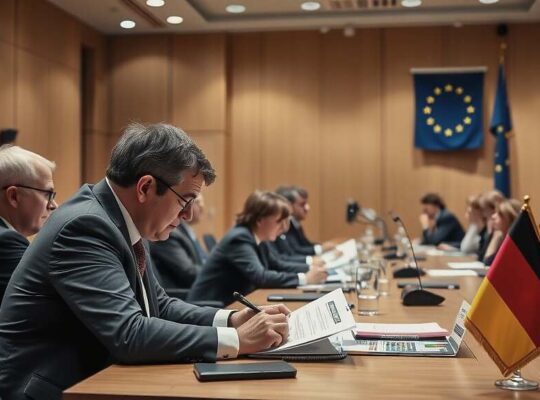Leading European corporations SAP and Siemens are calling for a fundamental overhaul of the European Union’s artificial intelligence (AI) legislation. In a recent commentary published in the Frankfurter Allgemeine Zeitung (FAZ), the CEOs of both companies, Christian Klein of SAP and Roland Busch of Siemens, articulated the need for a revised legal framework designed to foster innovation rather than obstruct it.
Roland Busch specifically cited the European AI Act as a key impediment to accelerating progress in the field. He argued that the Act suffers from internal inconsistencies and overlaps with existing regulations. Furthermore, Busch described the Data Act as “toxic” to the development of digital business models.
While acknowledging a recent letter signed by various industry representatives urging the EU Commission to temporarily halt current regulations, Busch stated he refrained from signing because he believed it did not go far enough. He emphasized that the goal isn’t to simply pause the process and implement a stricter version of the same law in the future, but rather to introduce substantive revisions in the interim.
SAP CEO Christian Klein cautioned against replicating the American approach, which prioritizes massive investment in infrastructure and data centers. He acknowledged the rationale behind the U.S. Stargate infrastructure initiative – designed to support the development of large language models (LLMs) – but argued that Europe should not blindly follow suit. Klein stated that SAP has not seen any customer AI projects hindered by a lack of data center capacity.
According to Roland Busch, a crucial first step should be reforming European data regulations before substantial investments are made in data centers. He underscored the untapped potential residing within European data resources, suggesting that current limitations prevent their full utilization. Busch warned against an inverted approach, arguing that prioritizing infrastructure investment without addressing underlying data regulations is counterproductive.












